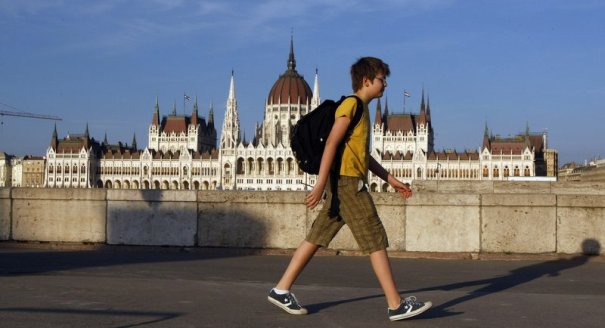Western leaders’ recent attempts to assure a diplomatic resolution of the Ukraine crisis may come to no avail. Strongly supported by the Russian population, Vladimir Putin seems unwilling to alter his stance, while the American government considers sending lethal weapons to aid the Ukrainian government. Is it possible to restore the peaceful, European status quo amidst such rapidly growing East-West animosity? Eurasia Outlook asked Carnegie’s experts to share their thoughts.
Dmitri TreninDirector, Carnegie Moscow Center
Whatever happens in Minsk, and whatever is implemented thereafter, will not produce a settlement to the Donbas conflict, much less for the larger issue of security in Europe. At best, it is likely to be a truce, hopefully a lasting one, but offering little prospect of (re)integration—in Ukraine or on the continent as a whole. Indeed, the truce will legitimize new divisions—along the cease-fire lines in Donbas and the NATO-Russia quasi-frontline in Europe. There will be no new Iron Curtain, to be sure, but communication between Russians and Westerners has already become difficult, with people essentially talking past each other, as the public exchanges during the recent Munich Security Conference have demonstrated.
This new reality will last awhile. Hard to say how long and even harder to predict how it will evolve and where it will end. The largely cooperative European order which existed from 1989 till February 2014 is history. Today’s situation, however, is not a throwback to the Cold War standoff. Things are now much more fluid, there are so many more dimensions to watch: economics, domestic politics, global balances—all in an information environment which has become an intensely contested battlefield. The world disorder that so many pundits talked about for years has finally arrived in Europe. Instead of fearing a new Yalta, or musing about a new Helsinki, it is time to work hard to make sure that the shaky truce, if it happens, does not founder, leading to a broader war.
Marc PieriniVisiting scholar, Carnegie Europe
Seen from an EU or Western European perspective, preserving the peace order in Eastern Europe has become the most elusive foreign policy challenge in recent history. The reasons put forward by Russia for why it must “defend” itself against the West and NATO are perceived as entirely artificial and, indeed, the various attempts at restoring peace have so far proven to be illusory.
Russia claims to want peace and entertains peace discussions, while it simultaneously supplies eastern Ukraine rebels with heavy weapons and troops. Meanwhile, on other scenes, Russia is pursuing a policy of systematic opposition to the West in different ways. The Russian air force has pursued a policy of harassment of European air space for more than a year now; Russia is said to be seeking new military base rights in an EU member state, Cyprus; Russia also financially supports a number of political parties within the EU; Russia has supported the Syrian regime with arms and ammunitions supplies for nearly four years, causing massive destabilization of the region.
Under these circumstances, it is no wonder that Russia’s image in the West has rapidly deteriorated. The only way forward for European political leaders is to keep trying to convince the Russian leadership that peace negotiations are the only way forward in Ukraine. Meanwhile, those EU countries which are also NATO members rely on existing provisions to get protection from eventual aggression.
Andrei KolesnikovSenior associate and chair, Carnegie Moscow Center’s Russian Domestic Politics and Political Institutions Program
The contemporary emerging world order bears no resemblance to the bipolar system of the past or to that after the “end of history” brought on by the fall of the Berlin Wall.
The possible truce in the east of Ukraine will not produce the new world order, either. After all, the hybrid war there is fraught with exigencies and may lead to renewed hostilities. Therefore, the West can either get more heavy-handed with Russia or resort to appeasing the state. The first scenario will result in continued fighting, while the second will lead to another, however transient, “freeze” of the active stage of the conflict.
It is quite clear that the West does not see Vladimir Putin as a completely trustworthy negotiation partner. His increasingly less flexible position leaves no chance for compromise; thus, Western leaders also have to adopt a tougher stance. Any political confrontation or even a mundane disagreement between two people dictates such logic. In this context, the Normandy Four negotiations may be one of the last opportunities to avoid increasing of mutual alienation between the West and Russia.
The more extreme the sanctions and the rhetoric get, the more ordinary Russians consolidate around the regime. The sharp economic deterioration did not sober anyone up; according to the Levada Center poll, it actually increased both the participants’ negative sentiments toward the West and support for their own head of state’s unflinching stance. In January, 69 percent of participants believed that the old policy ought to be continued despite the sanctions.
Thus, the only way to mitigate the situation and reduce the anger of ordinary Russians is to soften the sanctions regime. From a political standpoint, the West cannot agree to it, which makes the situation truly desperate.





